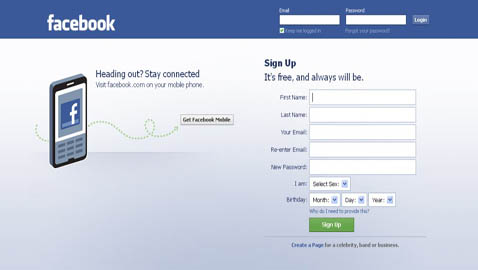Illinois Gov. Quinn Approves Legislation That Bars Employers From Access To Workers Social Networks
Post Views 3
On August 1, Illinois Governor Pat Quinn signed into law an amendment to the Illinois Right to Privacy in the Workplace Act.
“Members of the workforce should not be punished for information their employers don’t legally have the right to have,” Governor Quinn said. “As use of social media continues to expand, this new law will protect workers and their right to personal privacy.”
The law, to go into effect from the beginning of the next year, was earlier passed by the Illinois Senate by a 55-0 vote. The legislation, which was sponsored by Senate Republican leader Christine Radogno, was approved March 29 in the Illinois House with a 78-30 vote.
The Bill will make it unlawful for any employer to seek from an existing employee or one seeking employment, any password or other related account information, with the intention of gaining access into the employee’s or candidate’s account or profile on Facebook, Twitter, Orkut or any other similar social networking website.
The new law bars employers from demanding access in any manner whatsoever to such information. Employers are also prohibited from asking employees or prospective employees about their age, sex, race or sexual orientation. Information that their social network accounts would certainly reveal.
Some people have expressed skepticism how much of a deterrent this new law will be as guilty employers are liable to a meager fine of between $100 and $300 only.
However, it will still be within the employer’s right to maintain and enforce workplace policies on applicable use of the Internet, e-mail, and social networking sites. The employer is also not prohibited from monitoring whatever a worker or applicant has posted online on public domain.
Some employers however, say that passing a bill or not having one in place, hardly makes a difference. With the spate of litigations that employers have been exposed to over this issue, most employers know better than to seek information about passwords. Who wants to invite employment litigation, administrative burdens and accusations of discrimination and of exploiting employees in a difficult economic situation, they opine.
Facebook’s chief privacy officer, Erin Egan, said that such a law weakens and lowers the privacy expectations of both the employer and the employee. He says that this does not mean that they are asking that employers be allowed to seek passwords from their potential workers for it is not the right thing to do.
However, he argued, that inability to do a thorough background check on a worker could cause unforeseen problems. “For example, if an employer sees on Facebook that someone is a member of a protected group (e.g. over a certain age, etc.) that employer may open themselves up to claims of discrimination if they don’t hire that person,” he concluded.
It was found that employers sought employee and candidate passwords to keep an eye on the employees’ social media activity and to do a background check on new job applicants disposition and conduct.
Bradley Shear, a Maryland-based social media attorney who worked on Maryland’s legislation and the Social Networking Online Protection Act, said the bill becoming law was in the interest of both employers and employees.
“At the end of the day, you don’t want to create anything that hinders businesses, but you want to ensure businesses are protected and employees are protected,” Shear said. “(The bill) says employers do not have a duty to monitor the password-protected content of their employees. It will lower compliance costs for businesses and help ensure that they can’t be held liable for negligence.”
Illinois is the second state after Maryland that has passed a law that forbids employers from seeking access to employees’ social networking accounts. Other states that are expected to follow suit are California, New Jersey, Washington and Delaware.
Illinois Gov. Quinn Approves Legislation That Bars Employers From Access To Workers Social Networks by Harrison Barnes


 Maximize the Return on Employee Investment
Maximize the Return on Employee Investment  10 Essential Attributes of Great Hires
10 Essential Attributes of Great Hires  6 Ways to Make Your Employees Happier
6 Ways to Make Your Employees Happier  How to Deal with Negative Employees
How to Deal with Negative Employees  Ten Tips to Help First-Time Managers Be Better
Ten Tips to Help First-Time Managers Be Better  Generation Y is Changing Corporate America
Generation Y is Changing Corporate America  4 Types of Bad Managers and How to Deal with Them
4 Types of Bad Managers and How to Deal with Them  Top 4 Most Effective Management Styles & How to Use Them
Top 4 Most Effective Management Styles & How to Use Them